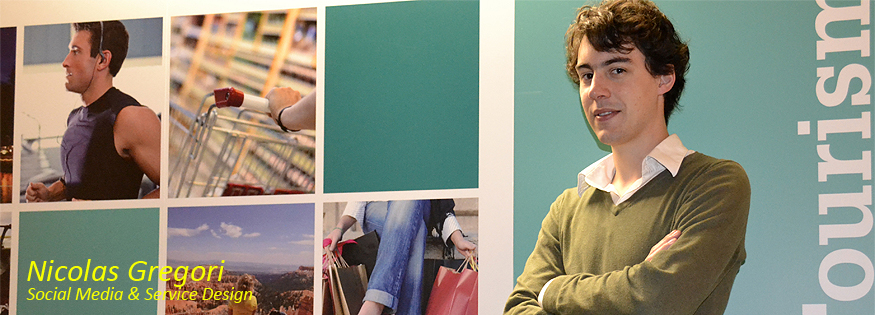
Nicolas Gregori is a Researcher at the eTourismLab at Bournemouth University. His research project, in collaboration with Professor Dimitrios Buhalis and Dr. Miguel Moital, aims to develop a theoretical understanding of agile service design, management and recovery against the background of recent advancements in e-enabled communication.
Over recent years the tourism and hospitality industry is confronted with changes in communication and information technologies. E-enabled communication – such as the rise of social media networks and communities, the wide-spread of mobile internet devices and the development of context based online services – is opening up new opportunities for organisations to interact with and retrieve information about customers in (near) real-time and regardless of physical presence of service employees. This development is of particular interest in consideration of providing personalised and adaptive service offerings, and ultimately for achieving service excellence.
In traditional service management research, the design of new service products is ascribed to the pre-consumption stage of service value creation. In essence, marketing departments design services based on understanding new and/or changing customer needs. Hence, the success of (new) service products is dependent on the ability to create or adapt the service to meet specific customer needs as well as the ‘competitive speed‘ at which the service is delivered. The traditional approach of developing service products however, is too slow to meet rapidly changing needs of consumers. Furthermore, it lacks the ability to respond to individual customer preferences and needs within the consumption stage.
Delivering (new) services in tourism and hospitality is a complex process, and research provides evidence that service failures and breakdowns inevitably occur. In this regard, it is pivotal for service companies to learn from customer feedback, in order to both recover from these failures and to improve the provision of services constantly. However, customer feedback collection tools are mainly focussed on gathering feedback after the service encounter. This in turn protracts the process of addressing and improving detected weak-points in the service delivery system. Hence, service providers also lack responsiveness regarding the ability to react to customer complaints and suggestions for improvement proactively and in real time.
The previously outlined technological advances with regard to e-enabled communication and customer-information dissemination however, allow (hospitality and tourism) organisations to develop agile service products in real time, to access real time customer feedback and to adapt services at the consumption stage according to both customer information and real-time feedback. Agile service design and adaption (e.g. dynamic service design, flexible real time personalisation) benefits from increased accessibility of a variety of background information on consumers through social media and other online channels. In addition, it harvests the possibility to receive consumers’ voice through electronic communication channels in real time. This in turn allows companies to design and adapt their service products dynamically (1) to specific customers and their needs (thus delivering the service accurately at the first time of use) (2) to those needs that may change in the course of the service consumption and (3) to address failures and breakdowns in the service delivery before dissatisfaction by consumers occurs. In addition, it increases the speed and responsiveness by which feedback about the service delivery (e.g. complaints, improvement suggestions) can be retrieved and subsequently incorporated into business processes.
As existing research on service design is rooted in the pre-consumption stage and the collection of feedback in the post-consumption phase, the proposed research will address the outlined gaps of responsiveness and agility that (hospitality and tourism) service providers are confronted with. Hence, the study aims to develop a theoretical understanding of agile service design, management and recovery against the background of recent advancements in e-enabled communication.